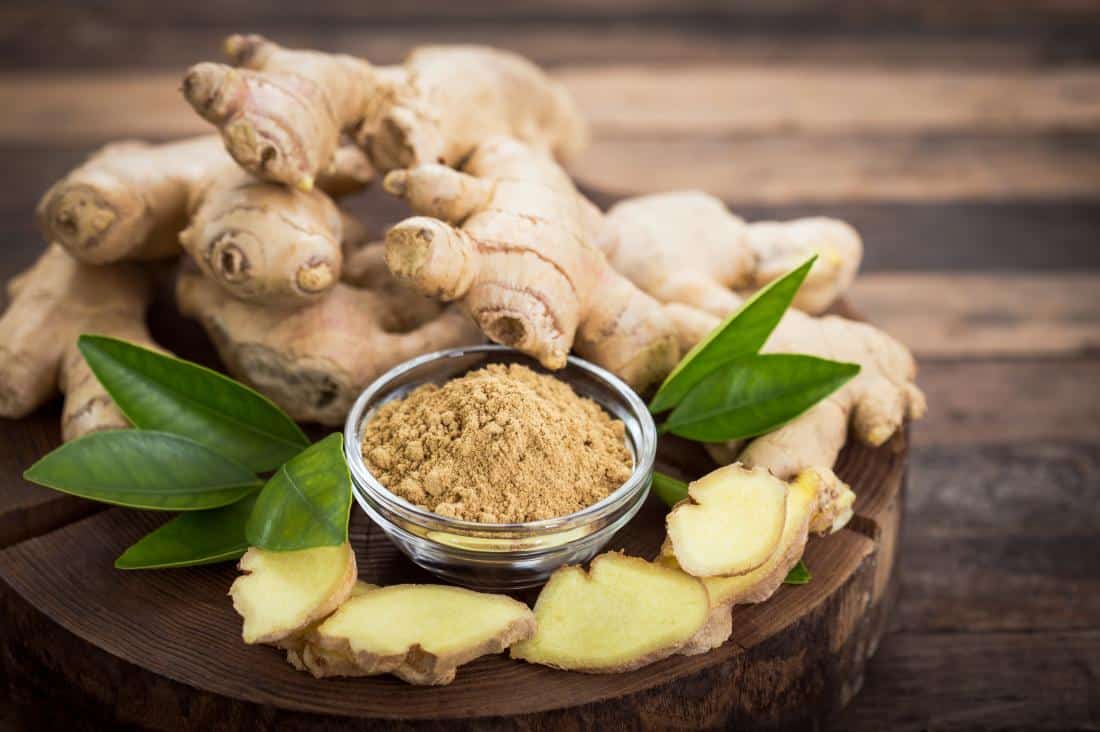Ginger is commonly used to treat various types of “stomach problems,” including motion sickness, morning sickness, colic, upset stomach, gas, diarrhea, irritable bowel syndrome (IBS), nausea, nausea caused by cancer treatment, nausea caused by HIV/AIDS treatment, nausea and vomiting after surgery.
Ginger is a plant with leafy stems and yellowish green flowers. The ginger spice comes from the roots of the plant. Ginger is native to warmer parts of Asia, such as China, Japan, and India, but now is grown in parts of South American and Africa. It is also now grown in the Middle East to use as medicine and with food. Ginger is commonly used for many types of nausea and vomiting.
In foods and beverages, ginger is used as a flavoring agent. In manufacturing, ginger is used as for fragrance in soaps and cosmetics. One of the chemicals in ginger is also used as an ingredient in laxative, anti-gas, and antacid medications.
Ginger contains chemicals that may reduce nausea and inflammation. Researchers believe the chemicals work primarily in the stomach and intestines, but they may also work in the brain and nervous system to control nausea.
Menstrual cramps (dysmenorrhea). Research shows that taking ginger powder 500-2000 mg during the first 3-4 days of a menstrual cycle modestly decreases pain from painful menstrual periods.
Diabetes. Taking ginger seems to lower blood sugar in some people with diabetes. Doses of at least 3 grams of ginger per day seem to be needed.
- High blood pressure. Drinking black tea with ginger might lower blood pressure by a small amount in people with diabetes and high blood pressure.










